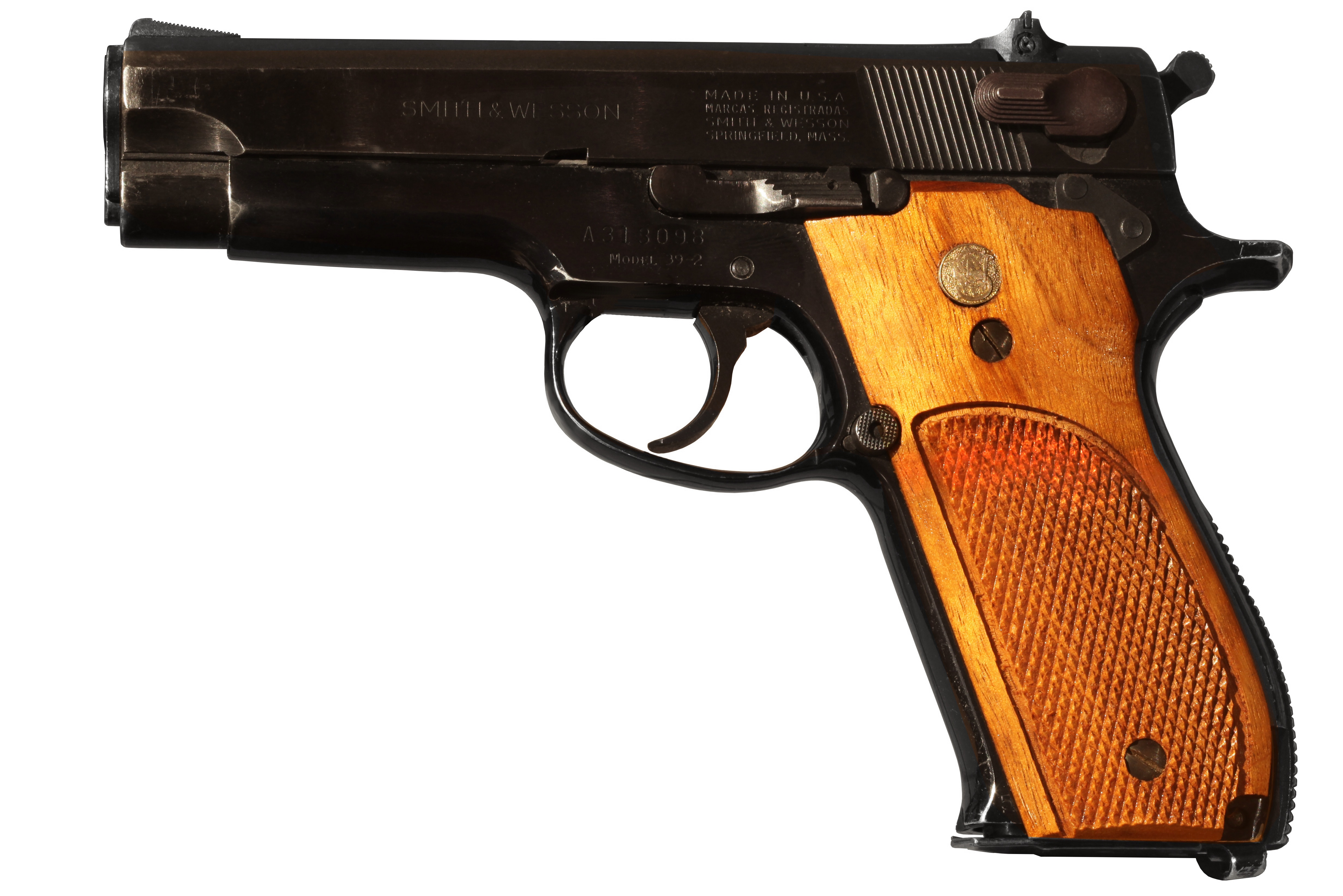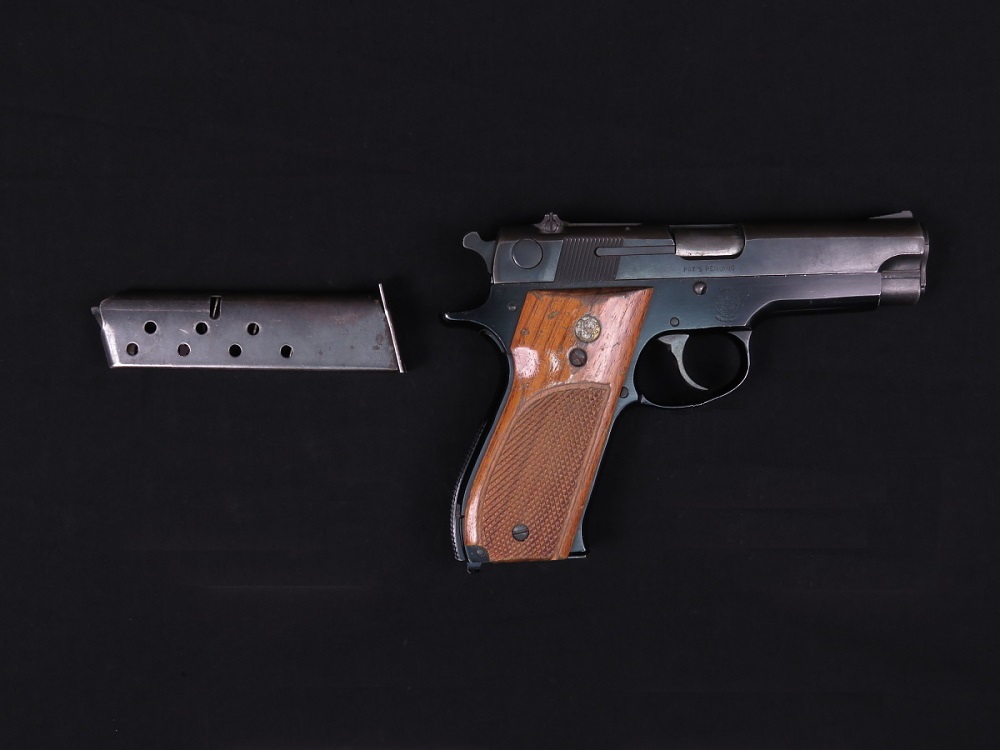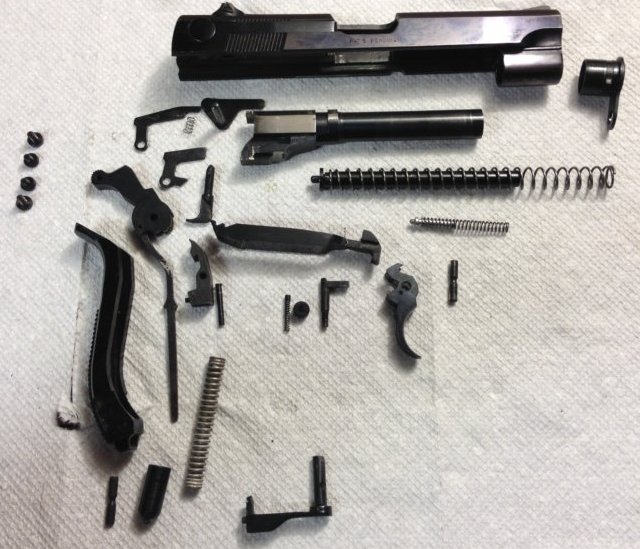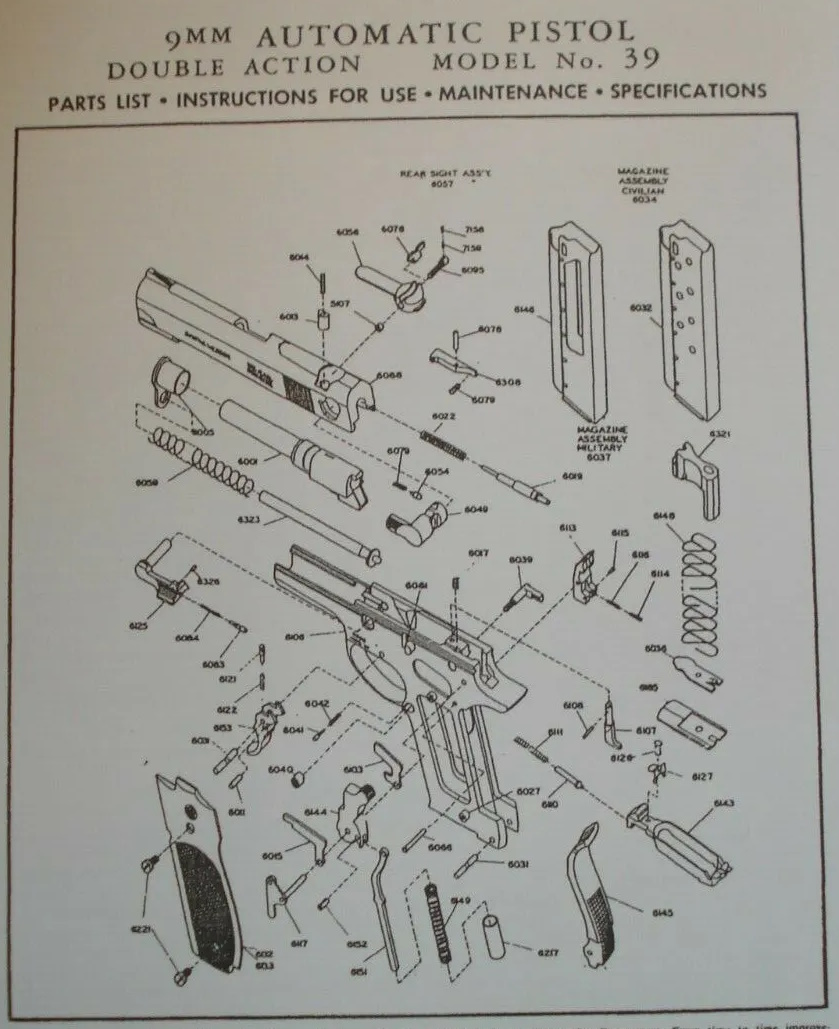S&W M39-2
| Factions | Weapon | Icon | Classes | Ammo |
|---|---|---|---|---|
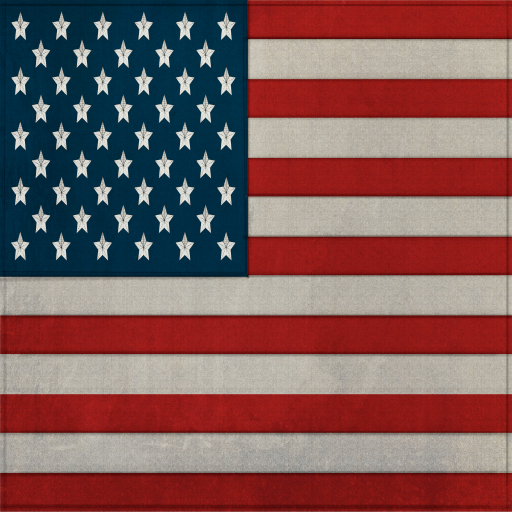 US |
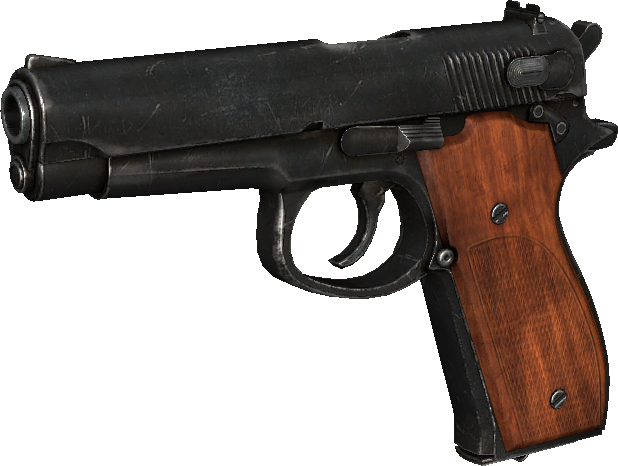 S&W M39-2 |
 |
Everyone Except Sniper |
8+1 / 16 |
| Damage Base | Headshot × | Chest × | Stomach × | Leg × | Arm × | Reload Speed | |
|---|---|---|---|---|---|---|---|
| Partial | Empty | ||||||
| 30 | ×2.4 = 72 | ×1.6 = 48 | ×1.5 = 45 | ×1.15 = 34.5 | ×1.15 = 34.5 | 2 Seconds | 2.33 Seconds |
| Designation | Weapon Type | Fire Modes | Fire Rate | Bullet Spread ° | Range Modifier | Muzzle Velocity | Projectile weight | Weight |
|---|---|---|---|---|---|---|---|---|
| Mk 22 | Pistol | Semi | 50 RPM | 6.35° & 2.35° ADS | 0.72 | 350 m/s | 7.5 g (115.7 gr) | 0.752 kg (1.65 lbs) |
| Full name | Caliber | Place of Origin | Date | Manufacturer | Barrel Length | Total Length | Weapon Script Name |
|---|---|---|---|---|---|---|---|
| Smith & Wesson Model 39-2 | 9x19mm | USA | 1954 | Smith & Wesson | 4 in (102 mm) | 7.55 in (192 mm) | weapon_mk22 |
The Smith & Wesson Model 39 is a semi-automatic pistol developed for the United States Army service pistol trials of 1954. After the Army abandoned its search for a new pistol, the Model 39 went on the civilian market in 1955 and was the first of Smith & Wesson's first generation semi-automatic pistols.
A modified version saw limited use with Naval Special Warfare units as the Mk 22 Mod 0.
HISTORY
During World War II, the German Walther P38 double action/single action pistol impressed American ordnance personnel so much that the Army Ordnance Corps issued a proposal for an American equivalent to the P38. In 1949, Smith & Wesson began development of the Model 39 chambered in 9×19mm Luger and it entered the market in 1955. It was the first U.S. designed double action (DA) semi-automatic pistol, and was designed to replace the venerable M1911A1. The 1911 was still extremely popular with law enforcement, military and civilian use, but only offered a single action trigger and a heavy steel frame.
A modified version of the Model 39 with a wider grip frame to accommodate a 14-round magazine was used by Naval Special Warfare units during the Vietnam War. It was issued to officers-in-charge (OICs) of MST-2 detachments as their sidearm. SEAL Teams used either the Model 39 without modification or a modified version, the Mk 22 Mod 0, which was called the "hush puppy". The modified pistol had a suppressor with a slide lock (preventing the slide from moving backwards upon firing, thereby decreasing produced noise). The Mk 22 Mod 0 had raised iron sights, to provide easier sighting over a bulky suppressor. The gun's purpose was to kill sentry dogs or guards without alarming the main target.
SOURCE
